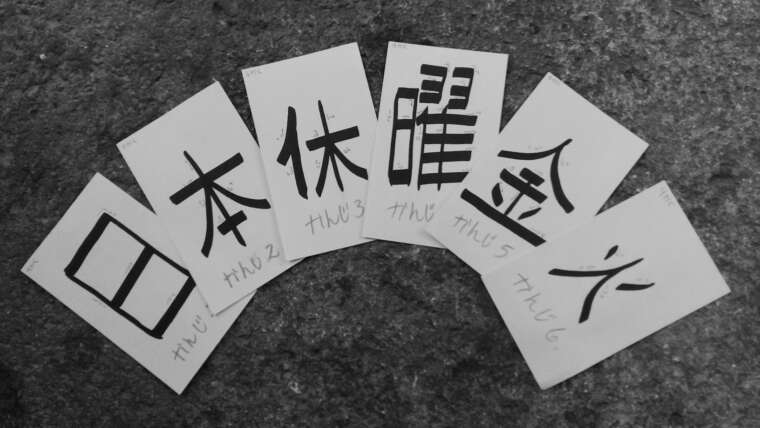
Preparing for your career early as a foreign student in Japan
Written for and also published on Why Japan
In much of my blog I talk a lot about job-hunting. More specifically what to do when you’re already at the gates of the seven layers of hell called shukatsu (Japanese job-hunting).
That being said though, like anything in life the most prepared foreign students really do the best at it. This isn’t just in terms of how successful they are in terms of the numbers of job offers or how prestigeous these are. The best prepared foreign students when it comes to job-hunting get job offers easier, earlier and with much wasted effort, often through back doors not accessible to others.
Unfortunately though, the career support that schools offer – when they do offer it – often are limited to direct shukatsu support. And therefore I felt that it was important for me to write an article about advice for what you can do in the years and months leading up to shukatsu.
Learn the rule book

Let’s start with obvious stuff. One of the worst things you can possibly do for yourself is assume that things here in Japan will work like they do in your home country. Clearly, one of the most obvious ways to prepare for shukatsu is well, knowing about it.
This is already covered by other articles by me and many other sources. But there are a two key things that I want to draw your attention to.
Don’t be late for shukatsu

The most common form of self-sabotage I see in foreign students is job-hunting too late (see this article for more details about self-sabotage). There is the shukatsu (job-hunting) visa available for those who want to continue job-hunting after graduation but this should be a last resort.
What happens is that foreign students often get a bit too concentrated on their studies (or other things) and think that job-hunting is fine in the last few months before graduation. Job-hunting in Japan usually happens much earlier and by the time people start doing job-hunting most companies’ hiring is already closed.
If you find yourself in this situation do be aware that it is never too late as there are companies which hire year round too. But if you can avoid it, don’t let yourself end up in this situation by understanding that job-hunting in Japan is usually 2 semesters before graduation (1 semester for autumn gradutes) and can go back to 3 semesters even.
Overconfidence and complacency
Thinking that things will be alright does not make things alright. You may think that a JLPT N1 is impressive and that you have good chances getting into a prestigeous gaishikei with that, especially if you come from a brand-name school.
It is impressive, but there are many other impressive people out there, including trilingual foreign students who can speak keigo, and kikoku-shijo (returnees) with native Japanese. If you want to aim for the top 1% of companies around, then you probably need to be in the top 1% of job-hunters.
Most of us, by very simple statistics, are probably not going to be in that top 1%. But the important thing is that we can work towards being there. And this brings us to…
Upgrade, Upskill
With degree and grade inflation, having a straight A profile doesn’t really cut it anymore. And anyways, especially if you are a bachelors or masters student in Japan, what you study and your grades really aren’t a big factor in recruitment anyway.
But so then, how should you focus your time? Here are some suggestions that I would make.
Work on your Japanese.

Is it possible to find a job in Japan without Japanese? Yes. Does Japanese make the process exponentially easier? Also yes.
Take a look at my other article where I explore just how much Japanese you need to find a job in Japan. In short though, I roughly estimate that each JLPT level that you advance doubles the numbers of companies willing to take a look at your profile and by your extension, your job prospects.
And don’t just rely on your school. The more effort you put into Japanese outside of school the quicker you will advance. Subsequently, with this advancement, more opportunities will open up even while you are studying. Do also consider free materials such as automatic dictionaries such as Rikaikun, memorization tools such as Anki, or courses such as Minato by the Japan Foundation.
Experience
Building work experience while you are a student is also very important when finding a job. There is a general rule about this that may be good to remember.
Baito experience is better than no experience. Long term internship experience (not the 2 day kind) is even better than baito.
Why do I say so? Having baito experience (and hopefully for some stable period of time) at least sends a message to recruiters that you can be responsible for doing tasks. Long term internship experience adds on top to that by exposing you to how companies work behind the scenes. There really is a huge difference in the quality of interview answers from students, both Japanese and foreign, who have experienced long-term internships give and those without.
What about school activities?

But what about activities in school? Don’t they also add experience?
Yes … but also no. They do build your network of fellow students and by interacting with Japanese students you will get a chance to find out more about Japanese culture. But when it comes to your career, there will be a whole big bunch of other students who will be writing about their club activities and their seminar work in their resume. School activities run the risk of simply being very common and a poor differential point.
My advice is that if you want to do student activities, do something that other people aren’t doing. Business competitions, clubs where there are actual projects (like overseas projects) with some actual outcomes and other things like that.
Remember that the key to hiring is to make yourself stand out. Doing things that everyone else is doing does not help you.
Build Your Network

Your experience is a sign of you can provide. Your network is who knows of what you can provide.
And these people are also conversely the people who can point you to back doors, check your resume and do interview practice with you. These, among nudges in total can push your career a long way. This can even been getting a job offer without even a single formal interview – which actually happened to me and many other former foreign students which I know of.
The problem is that there is no formula to building a network. But there are some patterns we can observe.
Spread your network wide
The more dice you throw, the better your possible results. And you’re not here in Japan to just hang out with fellow foreigners so really, the best thing you can and should do is to spread your network wide while being a student.
Also, we know that the bad thing about being a foreigner in Japan is that you stand out. But the good thing about being a foreigner in Japan is also that you stand out. Because many people are therefore interested in your background and your profile, it probably is easier to network as a foreigner in Japan than as a Japanese student.
What this means is that try going around to gatherings where you can get to know new people. And don’t just keep yourself to your school too, events or gatherings outside can also help to broaden your network.
I am also saying this because one of the internships I got while a student came from someone that I got to know at a dormitory party. Since you really don’t know where an opportunity can come meeting as many people is possible is not a bad strategy.
But don’t forget quality

But however, the other side of the equation is that not all networks are the same. In particular, the more shakaijin (working professionals) which you know the better. Actually, the more shakaijin know of you, even better. And if you really want to get an insight into how working in Japan is as a foreigner, knowing foreign senpais who are working in Japan or who have worked in Japan can be very useful.
This is why getting out of school is so important as mentioned above. And really both the Japanese and foreign students who do the most outside school get the best boosts to their job-hunting prospects.
Aside from the internships above, consider doing other things like volunteering and attending gatherings where working professionals gather.
Preparation makes perfect
“Give me six hours to chop down a tree and I will spend the first four sharpening the axe.” – Abraham Lincoln
What you do in your first few years in Japan is really just as important as what you do in your last year job-hunting here. I hope this tips will give you some ideas of how you can start early with your career and plant the seeds that will grow into the opportunities that you want.
